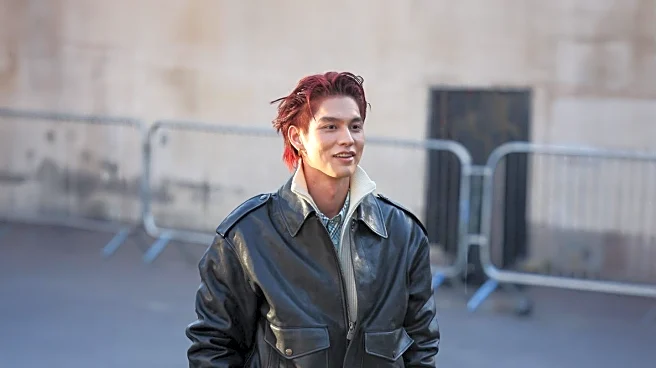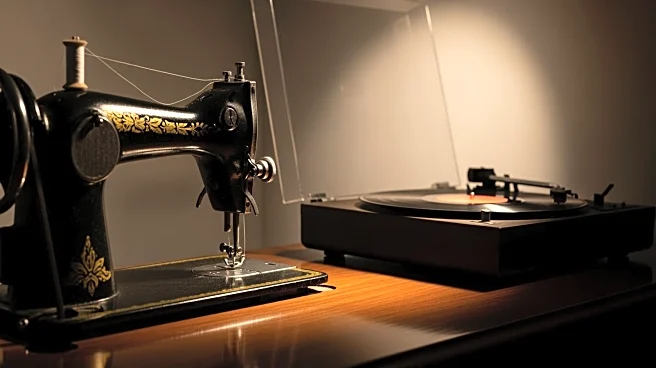What's Happening?
London Fashion Week showcased a variety of street style trends, emphasizing the city's unique fashion sensibility. Key trends included plaid skirts, track jackets, striped tops, argyle knits, slogan tees, knee-high boots, and khaki colorways. The event highlighted the city's support for independent and emerging designers, with notable appearances from Talia Byre, Chopova Lowena, and Conner Ives. Vintage clothing played a significant role, with attendees often boasting about their thrifted finds.
Why It's Important?
London Fashion Week's focus on street style trends underscores the city's influence in the global fashion industry. By championing emerging designers and vintage fashion, London sets itself apart as a hub for innovation and sustainability. These trends may inspire designers worldwide, promoting a blend of old and new styles. The emphasis on independent talent supports the growth of small businesses and fosters creativity in the fashion sector.
What's Next?
As London continues to lead in fashion innovation, other cities may adopt similar approaches, focusing on sustainability and emerging talent. Designers and brands will likely explore collaborations with vintage and independent labels, expanding their reach and appeal. The trends from London Fashion Week may influence upcoming collections, shaping the future of fashion globally.
Beyond the Headlines
The prominence of vintage and independent fashion at London Fashion Week reflects broader cultural shifts towards sustainability and ethical consumption. As consumers become more conscious of their environmental impact, the fashion industry may increasingly prioritize eco-friendly practices and support for small businesses. London's approach could serve as a model for other fashion capitals, encouraging a more responsible and inclusive industry.









